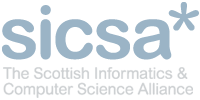By Belinda Onyeashie
19 January 2024
Background
I am a second-year digital forensics PhD candidate at Edinburgh Napier University. My research focuses on improving digital evidence management (DEM) to provide reliable evidence trails and timelines for law enforcement. I was thrilled when my request to attend the SWGDE meeting was approved. The mission of the Scientific Working Group on Digital Evidence (SWGDE) is to foster cooperation and ensure quality and consistency across the forensic community by developing interdisciplinary guidelines and standards. Specifically, SWGDE brings together members from law enforcement, academia, and industry to formulate best practices for recovering, preserving, and examining digital evidence.
The Meeting
The SWGDE meeting was focused and collaborative. There were about sixty participants-twenty-three guests and members. We separated into groups based on expertise: Audio, Forensic, Imaging, Photography, Quality & Standards, and Video Committees. I joined the Forensic Committee, which creates guidance documents on digital forensics best practices. They develop comprehensive documents on technical topics related to digital evidence collection, preservation, and analysis.
The visit allowed me to contribute directly to future best practice standards in DEM, perfectly aligning with my research.
It was valuable to connect with experts from academia, government, and industry. The wealth of knowledge and connections are priceless. As one of only two PhD students approved among twenty-three guests, I was able to contribute alongside supportive and
collaborative longstanding stakeholders who are actively evolving with the field.
My group completed seven documents for publication and has four in progress, with promising topics proposed for the future.
Acknowledgements
This trip and invaluable experience gained would not have been possible without SICSA’s generous financial support for travel to Boulder, Colorado. I am grateful to SICSA and hope to support them in whatever capacity I can, both now and in the future.

















